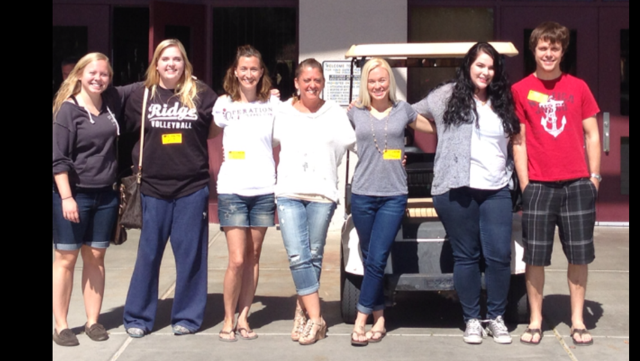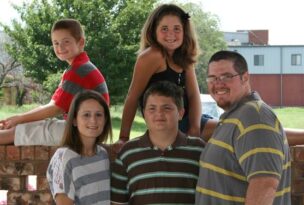Importance of Relapse Prevention
One of our primary goals at Rosewood is to give you the skills and support you need to achieve long-term recovery and avoid relapse. That process begins as soon as you’re admitted to any of our programs. It continues throughout your stay and long after treatment ends. This early and continuous focus on preventing relapse is one of the factors that’s unique about Rosewood. We believe it’s one of the most important elements in every patient’s recovery—adults as well as adolescents. Recovery from an eating disorder takes commitment, self-acceptance and a realistic long-term view. Once you gain confidence, you’ll still need to stay vigilant, always. That’s the nature of the disorder. The temptation to return to old, destructive thoughts and behaviors—the ones you learn in treatment to identify and overcome—will occur from time to time. Relapse can threaten to undo the progress you’ve made. So when you complete your treatment and transition to an independent life, we won’t just wish you good luck and send you on your way. We’ll make sure you have coping skills and resources you can use in times of weakness. In this sense, Rosewood is like a tightly-knit family.

Relapse Prevention During Treatment
Relapse prevention is an integral part of every patient’s treatment process, starting on day one. It’s built into your individualized treatment plan and will come up often as you gain strength through our various treatment modalities. Preventing relapse, in other words, is a major priority. To help prepare you for long term recovery, you’ll participate in weekly relapse prevention and aftercare sessions. During these sessions, you’ll learn coping strategies you can use if you’re tempted to relapse. You may have opportunities to experience trigger scenarios and practice how to respond effectively. This important training builds your confidence, reinforces newly learned behaviors, and strengthens your ability to avoid relapses proactively.
Bonds Established at Rosewood Can Last a Lifetime

While you’re undergoing treatment at Rosewood, you’ll meet others who are in treatment at the same time. You’ll get to know others during mealtimes, in group therapy sessions and throughout your stay. These bonds of fellowship play an important part in your recovery, and they’ll remain important resources for you when you enter aftercare. There is enormous power that comes from just being in a community of people who understand the struggle of recovery, who face their personal challenges together. It’s a community of healing. Just as teamwork helps you get through many challenges during treatment, it will help you stay strong throughout the long term. You’ll have opportunities to grow your personal support network, and you’ll be encouraged to take advantage of them. If faced with the challenge of relapsing, you’ll have people you can call for support when you need it. This support works both ways. At one time or another, people you’ve bonded with may call you too. You’ll have a chance to experience the satisfaction of helping a peer who needs you.
Aftercare Support
When you’ve completed your stay at Rosewood, your treatment team and aftercare coordinator will work with you and any necessary third parties (family members, school officials, your doctor) to create a detailed aftercare plan. If you don’t already have an outpatient treatment team you can rely on, we’ll help you assemble one. You’ll hear from our alumni coordinator personally—numerous times within your first year after treatment. The alumni coordinator helps you stay on track with your recovery plan, and provides additional resources whenever you need them. If you need a referral to a physician, counselor or support group in your area, our alumni office will help you find one. A few key points you’ll learn in aftercare:
- The tendency to fall back on old habits is not a moral failing. It’s a normal part of the disease process.
- If your resolve starts to wane, that’s the time to reach out for help. Call a friend, family member, fellow alumnus, our aftercare coordinator, anyone.
- Reaching out for help is not failure or weakness. It is a sign of strength.
- Celebrate your victories, even the small ones; don’t be too self-critical if you take a step back.
- Accept that recovery is a lifelong process; there will be urges to go back to previous behaviors.
- Help others in their own struggles whenever you can, as long as it does not jeopardize your own recovery.

Thank you Rosewood for saving not just my wife, but our whole family!
Rosewood’s Alumni Program
As a Rosewood alumnus, you’ll be part of a unique and supportive family. You’ll likely have formed lasting friendships with others you met at Rosewood, and you’ll also have established bonds with many of the members of your multidisciplinary team. We’ll encourage you to cherish and nurture these relationships. Ongoing support comes in many forms, including our Facebook and Instagram pages, group activities, eating disorder anonymous groups, national and local alumni reunions, and a variety of other activities organized by Rosewood’s alumni department. Each of these forums gives you opportunities to connect and communicate with peers in a safe environment—to nurture existing bonds and establish new ones. You’ll also be encouraged to join the many other alumni who return to Rosewood periodically to encourage current patients as they follow their own paths toward recovery. This is a richly rewarding experience for everyone who participates.
Operation RecoverED
The mission of Operation RecoverED, initiated by Alumni Program Coordinator and Recovery Coach Shannon Hershkowitz, is to provide an opportunity to get involved with ED awareness efforts. Participants do this by raising awareness about anorexia, bulimia, and binge eating disorders at schools, clubs, and organizations across the globe. You’ll be invited to join this remarkable program.


Dust yourself off, and get back up immediately, don’t use it as an excuse to continue to stay down.




